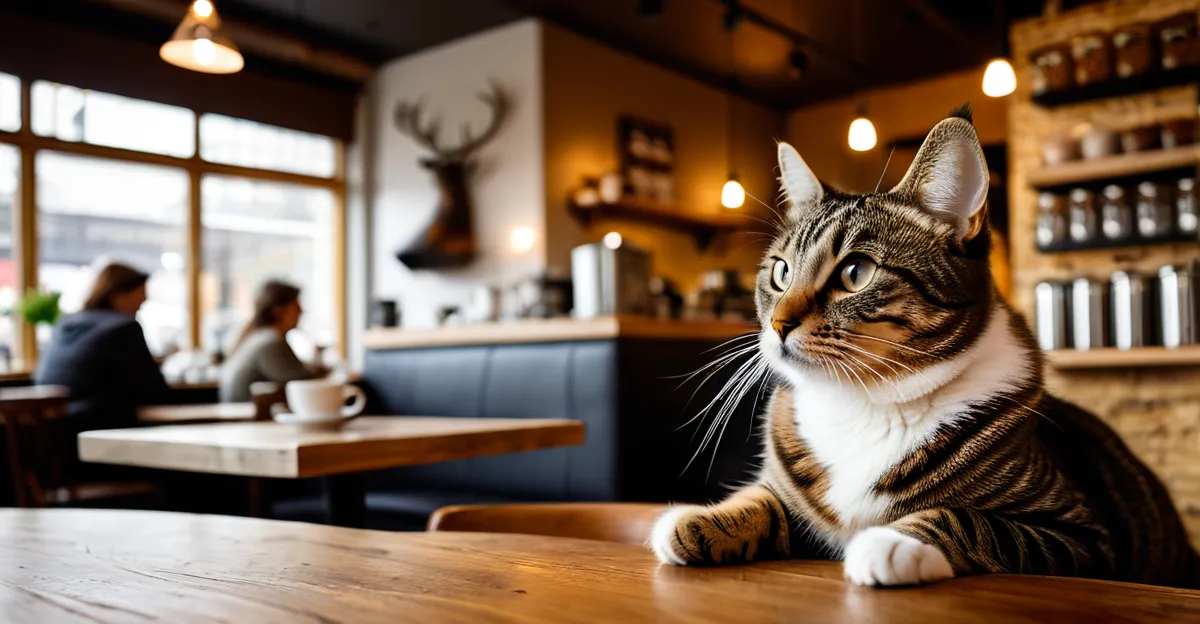Key Drivers Behind the Rise of Pet-Friendly Cafes in the UK
The rise of pet-friendly cafes in the UK is propelled by several interconnected factors deeply rooted in modern societal changes. A primary driver is the marked increase in pet ownership across the UK, reflecting a broader cultural emphasis on pets as integral family members. This growing pet-friendly culture encourages cafes to adapt their environments to welcome pets alongside their owners, creating a more inclusive and comfortable atmosphere for all.
Another significant element is the shift in lifestyles, particularly with more people embracing flexible work and leisure habits. Remote work and irregular schedules allow individuals to seek social and recreational spaces that accommodate their pets, enhancing their daily routines. This shift not only fuels the demand for venues that welcome pets but also redefines leisure time, blending social interaction with pet care.
In the same genre : What Are the Factors to Consider When Adopting a Pet in the UK?
Moreover, there is a rising demand for inclusive community spaces where both pet owners and non-owners feel welcome. Pet-friendly cafes serve as hubs for community engagement, enabling people to connect over shared interests and fostering social cohesion. These venues often become part of a larger trend toward creating accessible, multi-functional public spaces that respond to changing social dynamics.
Together, these factors explain why pet-friendly cafes are not merely a passing trend but a lasting transformation in the UK’s hospitality sector, shaped by evolving consumer values and broader societal changes.
Also to read : How Can You Ensure Your UK Pet Is Living Its Best Life?
Impact on Communities and Local Businesses
Pet-friendly cafes in the UK significantly contribute to community benefits by creating spaces that encourage social interaction and improve overall social well-being. These cafes act as natural gathering points where pet owners can meet, share experiences, and build stronger local networks. This fosters a spirit of connection and inclusivity that extends beyond just the cafe environment, enhancing the fabric of local neighborhoods.
Local businesses also experience notable support from the rise of pet-friendly cafes. By attracting a diverse customer base — including dedicated pet owners seeking suitable venues — these cafes help boost foot traffic and engagement for surrounding shops and services. This support is especially valuable for small, independent businesses looking to capitalize on the enthusiasm surrounding the pet-friendly movement.
These cafes also play a pivotal role in enhancing urban vibrancy through inclusive public spaces. By designing welcoming environments for both pets and people, they contribute to livelier streets and encourage community participation. Such spaces are crucial in modern cities aiming to balance commercial success with social and environmental responsibility.
In summary, the growth of pet-friendly cafes in the UK goes beyond individual customer satisfaction: it actively strengthens communities, bolsters local economies, and revitalizes urban areas through thoughtful, inclusive social spaces.
Consumer Demand and Changing Expectations
The rise in customer demand for pet-friendly cafes in the UK is closely linked to evolving attitudes among UK pet owners, particularly Millennials and Gen Z consumers. These groups increasingly view their pets as family members, often referred to as “pet parents,” and seek venues that accommodate their companions comfortably. This shift reflects broader modern consumer trends where lifestyle choices integrate pet care and social experiences seamlessly.
Why are Millennials and Gen Z driving this trend? These demographics prioritize experiences and social connections, valuing environments that welcome pets as part of their daily lives. For many, dining out is not just about food or drink but also about shared moments with their pets, reinforcing the importance of pet-friendly cafes UK in fulfilling these expectations.
This demand extends beyond mere access; customers expect thoughtful amenities such as pet menus, safe outdoor spaces, and hygiene-conscious facilities. Such features elevate the pet-friendly experience, aligning with the lifestyle values of contemporary consumers. The expectation for high-quality, inclusive hospitality creates pressure for cafes to innovate and cater to the unique needs of pet owners.
Overall, the popularity factors behind pet-friendly cafes UK are deeply connected to these consumer expectations. The trend underscores a cultural transformation where pets are integral to social environments, not separate from them. Cafes responding effectively to this demand gain a competitive edge by attracting a loyal, engaged clientele who seek venues that recognize and respect their relationship with their pets.
Role of Legislation and Industry Standards
Understanding regulatory frameworks and their impact on pet-friendly cafes
The rise of pet-friendly cafes UK is closely guided by evolving UK legislation that permits animals within hospitality settings under specific conditions. Current laws regulate the presence of animals in public venues primarily to balance animal welfare and public health concerns. For example, while the Food Standards Agency restricts animals from food preparation areas, exceptions for assistance animals and certain pet-friendly zones offer cafes a structured framework to welcome pets responsibly.
How does this legislation influence cafe policies? UK laws set clear boundaries, prompting cafes to implement safety and hygiene measures such as segregated seating areas, regular cleaning protocols, and pet behavior policies. These rules are designed to protect both human customers and pets, ensuring a comfortable environment that meets legal standards without sacrificing hospitality quality.
Furthermore, animal welfare standards play an essential role beyond legislation by encouraging cafes to adopt best practices voluntarily. Establishments often collaborate with animal behaviourists to design spaces that minimize stress for pets and provide amenities aligned with welfare guidelines. This proactive approach demonstrates a commitment beyond compliance, enhancing customer trust and satisfaction.
The hospitality sector’s response to these clear guidelines has been constructive. Industry associations and local authorities offer resources and training to help cafes meet legal and welfare expectations effectively. This support fosters consistency across pet-friendly cafes UK, promoting a professional and ethical pet-friendly culture. Consequently, legislation and industry standards serve not as barriers but as enablers that support the sustainable growth and success of the pet-friendly cafe movement.
Expert Insights and Real-World Examples
Insights from hospitality experts and animal behaviourists shed light on the nuanced success of pet-friendly cafes UK. Experts emphasize that creating genuinely pet-inclusive environments requires understanding animals’ needs alongside human expectations. For instance, animal behaviourists advise cafes to design calming spaces with designated pet zones and provide amenities like water bowls and comfortable seating to reduce stress for pets. This focus on welfare not only elevates customer satisfaction but also fosters a loyal clientele who value responsible pet hospitality.
Several UK case studies illustrate how thoughtful integration of these expert recommendations drives popularity. Cafes that tailor menus to include pet-friendly treats and implement flexible seating policies tend to attract larger customer segments, simultaneously enhancing community bonds and business profitability. Establishments in urban centres, for example, have successfully combined pet socialisation events with regular café services, generating unique experiences that distinguish them in a competitive market.
Statistical data further confirms the rising trend. Surveys reveal a consistent increase in the number of pet-accepting venues, correlated with growth in pet ownership and consumer desire for inclusive social spaces. This positive feedback loop demonstrates how expert guidance, combined with real-world application, nurtures the sustainable growth of the pet-friendly cafes UK sector in line with evolving popularity factors and broader societal shifts.






